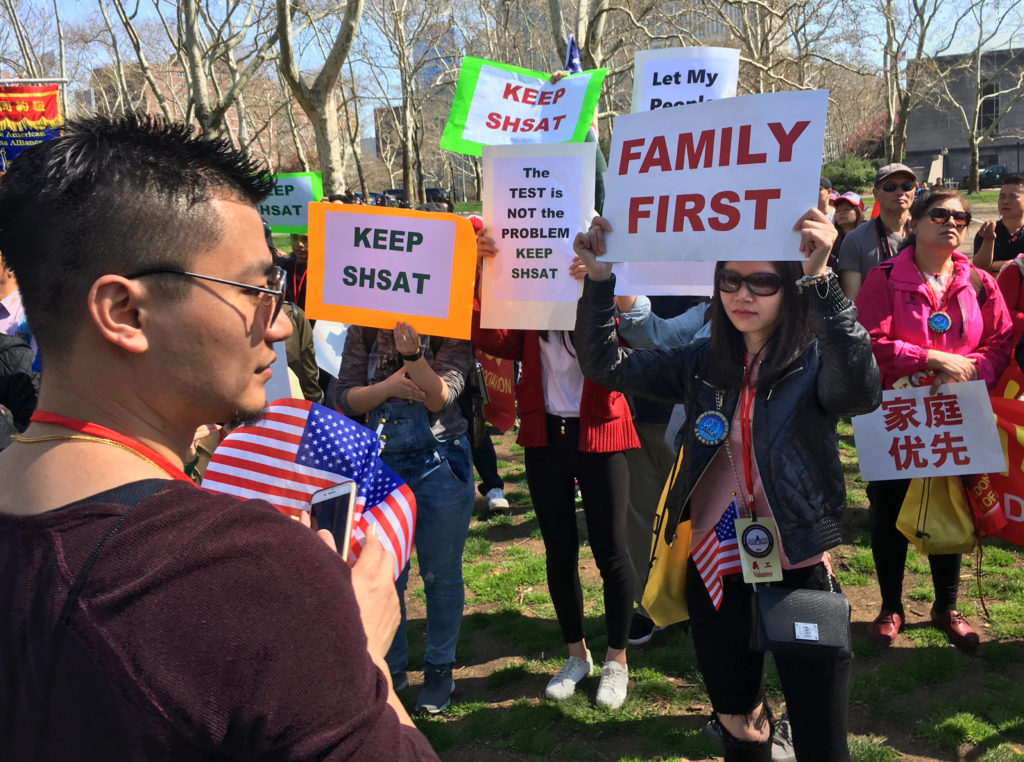How the mayor’s plan would transform specialized high schools

Under the mayor’s plan to move away from the Specialized High School Admissions Test, more than triple the number of Hispanic and black students who attended specialized high schools last year would have received offers to enroll, according to the city’s Independent Budget Office. And despite the dramatic shift in demographics, IBO found, student performance would remain high.
IBO conducted a report in February that looked at students’ demographics and prior academic performances to examine just who would have received offers for the 2017-2018 school year under Mayor Bill de Blasio’s plan to scrap the SHSAT – the test currently used to determine admission to the city’s eight specialized high schools. The mayor’s plan would instead select the top-performing students from each of the city’s middle schools.
The mayor – who has received both political and parental pushback on the proposal – maintains that the plan would provide greater opportunity to traditionally disadvantaged youth.

Brooklyn Boro
View MoreNew York City’s most populous borough, Brooklyn, is home to nearly 2.6 million residents. If Brooklyn were an independent city it would be the fourth largest city in the United States. While Brooklyn has become the epitome of ‘cool and hip’ in recent years, for those that were born here, raised families here and improved communities over the years, Brooklyn has never been ‘uncool’.